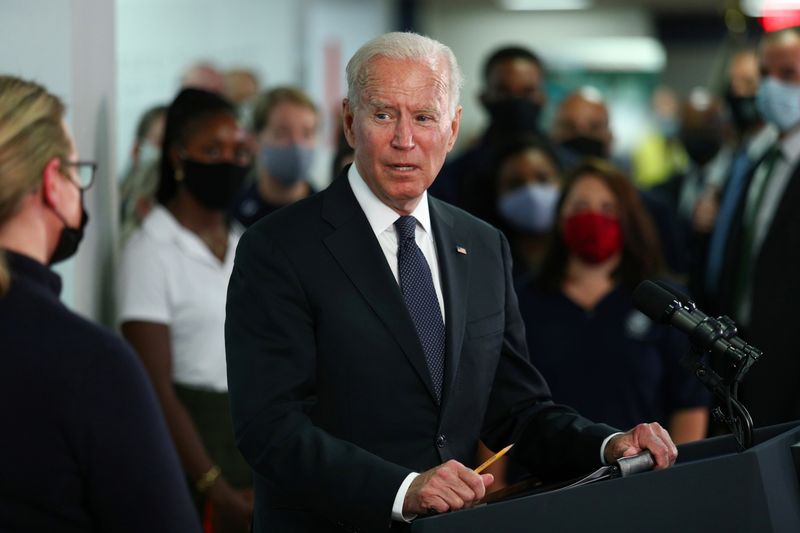(Bloomberg) -- President Joe Biden said he would raise the issue of human rights during a meeting with Egyptian President Abdel-Fattah El-Sisi.
“Today we’re also going to discuss a full range of bilateral issues,” Biden said Friday during the meeting in Sharm El-Sheikh, where he’s attending a UN climate summit. He said their discussion would touch on “our strong defense partnership, to pursuing a more integrated Middle East and continuing our dialogue on human rights.”
The meeting with Egypt’s president is one of several Biden will have with autocratic leaders during his week-long trip to North Africa and Asia, including sit-downs with the leaders of China and Cambodia. El-Sisi is hosting COP27, a conference on climate change, one of Biden’s highest policy priorities.
El-Sisi’s government has drawn criticism for its crackdown on political dissent. Biden and his team will continue to urge Egypt to release political prisoners and undertake legal reforms, according to a senior administration official.
National Security Advisor Jake Sullivan on Thursday told reporters at the White House the US would raise the case of Alaa Abd El-Fattah, a jailed writer and activist who is on a hunger strike.
“We would like to see him freed. We have had discussions through very senior channels. And I think you can expect that those conversations will continue on the ground in Sharm El-Sheikh, when we get there,” Sullivan said.
A group of more than 50 Democratic lawmakers signed a letter urging Biden to call for the release of political prisoners.
Biden on Friday praised Egypt as “a key mediator” with other nations and said the two countries had a “strong counterterrorism partnership.”
The president also thanked his Egyptian counterpart for his support in opposing Russia’s invasion of Ukraine.
Other issues likely to be on the agenda are conflicts in the Middle East, regional integration, food security and the disputed Grand Ethiopian Renaissance Dam project on the Blue Nile River.
Biden has said he sees the US locked in a global struggle between democracies and autocracies, but has had to turn to non-democratic leaders to address national interests.
He traveled to Saudi Arabia in July to meet with Crown Prince Mohammed Bin Salman to coax an increase in oil production amid a global supply squeeze prompted by the war in Ukraine. The move backfired, when the Saudi-led OPEC+ cartel cut production targets ahead of the US midterm elections.
